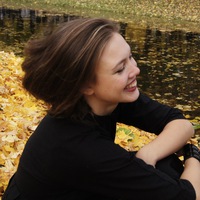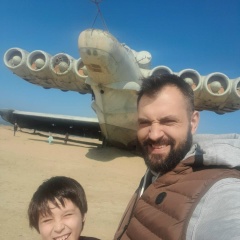Всю зиму мы едим тучную и горячую старую еду и весной мы не столько голодны, сколько усталы, пресыщены и отчаянно жаждем свежести. Мы жаждем сильных чувств, жаждем наблюдать как робкая новая жизнь берет верх над умершим и старым, как она разливается всей полнотой, дышит как сам ветер и пленяет своей красотой и вольностью, пухнет и трескается, истекая смолой и соком, пахнет и разлетается, прорастает сквозь неживое, раскрывает линии и формы, совершенство которых не в силах нарушить никакие обстоятельства, потому что совершенство это свежо, ново и оно спешит обогатить вселенную, и заодно человека, ее застенчивого наблюдателя.
Как же нам хочется, чтобы и внутри нас новое разрушило старое, проросло сквозь, съело это старье как питательную почву, переработало, усвоило и вознеслось вверх — зеленое, плотное и гибкое, сильное и непокорное, несущееся к самому солнцу. Развивающееся силой своей самости и потому нигде не застревающее, ни в росте, ни в увядании, ни в плодоношении, ни в поглощении. И нет природы прекрасного и природы ужасного. Есть только природа и то, постиг ли ты ее. Когда вокруг много не-природы, много неживого, это постижение становится затруднительным. Потому что одно живое определяет себя через другое живое. Но человек сбивается этапом раньше — в момент, когда нужно отделить живое от неживого. Потому что есть информация. Есть электричество и электроника. Есть идеи и коллективное представление. Но нет коллективного чувства. Люди одушевляют и разодушевляют своей волей. И сбиваются раз и навсегда.
А может человек сам создал неживое. Без человека есть только живое и мертвое. Камни живы. Деревья живы. Океан жив больше, чем можно представить. А человек создал вещь. Вещь нежива. И немертва.
Но человек умеет поселять в вещь дух. И тогда вещь живет. Как артефакт. Как искусство. Как послание человеку.
Когда идешь в лес берешь с собой две вещи: сосущее ожидание чудесного, детскую душу, которая ждет, что в лесу встретится волшебство, заманит тебя и ты лесом перейдешь границу этого мира и окажешься где-то в другом, куда более подходящем тебе месте. И страх. Рассудительность, часы, воду, готовый маршрут.
И лес смеётся над тобой и дразнит тебя волшебными арками, полными солнечных пятен и птичьих нот, проймами в ветвях, открытыми ровно на твой рост и фигуру, таинственными следами в рыхлой, никем не битой земле, нежнейшими цветами и яркими ягодами, каплями смолы на выгнутых сучьях, полостью мха обволакивающей и лишающей воли твои плоские и твердые как пол, по которому ходят, ноги.
Герой возвращается в дом, где провел детство и вспоминает игру, которой занимал себя, когда был подростком. Он составлял карту леса, уходя все дальше от дома, он знал все пути, знал множество приметных деревьев, камней и рощиц, но каждый раз лес заманивал его чем-то настолько прекрасным, что он забывал обо всем и терял путь, блуждал и ни разу, ни разу ему не довелось выйти из леса в назначенный час и назначенной тропой. Лес смеялся над его планом, дурачил его и каждый раз угождал его страсти к красоте, способной останавливать время.
В лесу чувствуешь себя соразмерным. В горах и в поле, у океана — песчинкой, малым муравьем, отбившимся от прочих. Может быть горы для тех, чей дух и разум велик, свободен, спрямлен ввысь, простерт к христианскому богу.
А лес для укромников, для тех, чей бог-язычник тихонько шепчет внутри. Подробен и замкнут, лес обступает плотно, в хорошем лесу не видно неба, его не продувают ветра. Лес — это большой дом.
Как же нам хочется, чтобы и внутри нас новое разрушило старое, проросло сквозь, съело это старье как питательную почву, переработало, усвоило и вознеслось вверх — зеленое, плотное и гибкое, сильное и непокорное, несущееся к самому солнцу. Развивающееся силой своей самости и потому нигде не застревающее, ни в росте, ни в увядании, ни в плодоношении, ни в поглощении. И нет природы прекрасного и природы ужасного. Есть только природа и то, постиг ли ты ее. Когда вокруг много не-природы, много неживого, это постижение становится затруднительным. Потому что одно живое определяет себя через другое живое. Но человек сбивается этапом раньше — в момент, когда нужно отделить живое от неживого. Потому что есть информация. Есть электричество и электроника. Есть идеи и коллективное представление. Но нет коллективного чувства. Люди одушевляют и разодушевляют своей волей. И сбиваются раз и навсегда.
А может человек сам создал неживое. Без человека есть только живое и мертвое. Камни живы. Деревья живы. Океан жив больше, чем можно представить. А человек создал вещь. Вещь нежива. И немертва.
Но человек умеет поселять в вещь дух. И тогда вещь живет. Как артефакт. Как искусство. Как послание человеку.
Когда идешь в лес берешь с собой две вещи: сосущее ожидание чудесного, детскую душу, которая ждет, что в лесу встретится волшебство, заманит тебя и ты лесом перейдешь границу этого мира и окажешься где-то в другом, куда более подходящем тебе месте. И страх. Рассудительность, часы, воду, готовый маршрут.
И лес смеётся над тобой и дразнит тебя волшебными арками, полными солнечных пятен и птичьих нот, проймами в ветвях, открытыми ровно на твой рост и фигуру, таинственными следами в рыхлой, никем не битой земле, нежнейшими цветами и яркими ягодами, каплями смолы на выгнутых сучьях, полостью мха обволакивающей и лишающей воли твои плоские и твердые как пол, по которому ходят, ноги.
Герой возвращается в дом, где провел детство и вспоминает игру, которой занимал себя, когда был подростком. Он составлял карту леса, уходя все дальше от дома, он знал все пути, знал множество приметных деревьев, камней и рощиц, но каждый раз лес заманивал его чем-то настолько прекрасным, что он забывал обо всем и терял путь, блуждал и ни разу, ни разу ему не довелось выйти из леса в назначенный час и назначенной тропой. Лес смеялся над его планом, дурачил его и каждый раз угождал его страсти к красоте, способной останавливать время.
В лесу чувствуешь себя соразмерным. В горах и в поле, у океана — песчинкой, малым муравьем, отбившимся от прочих. Может быть горы для тех, чей дух и разум велик, свободен, спрямлен ввысь, простерт к христианскому богу.
А лес для укромников, для тех, чей бог-язычник тихонько шепчет внутри. Подробен и замкнут, лес обступает плотно, в хорошем лесу не видно неба, его не продувают ветра. Лес — это большой дом.
All winter we eat fat and hot old food and in the spring we are not so much hungry as tired, tired and desperately hungry for freshness. We crave strong feelings, crave to watch how a timid new life takes over the dead and old, how it spills out in full, breathes like the wind itself and captivates with its beauty and liberty, swells and cracks, expiring with tar and juice, smells and scatters, sprouts through inanimate, reveals lines and forms, the perfection of which cannot be violated by any circumstances, because perfection is fresh, new and it is in a hurry to enrich the universe, and at the same time of man, its shy observer.
How do we want the new inside us to destroy the old, to sprout through, eat this junk as nutritious soil, process, assimilate and ascend - green, dense and flexible, strong and rebellious, rushing towards the sun itself. Developing by the power of its self and therefore not getting stuck anywhere, neither in growth, nor in withering, nor in bearing, nor in absorption. And there is no nature beautiful and terrible nature. There is only nature and whether you comprehend it. When there is a lot of non-nature, a lot of inanimate, this comprehension becomes difficult. Because one living thing defines itself through another living thing. But a person gets off the stage earlier - at the moment when it is necessary to separate the living from the nonliving. Because there is information. There is electricity and electronics. There are ideas and a collective presentation. But there is no collective feeling. People animate and inspire with their will. And get lost once and for all.
Or maybe man himself created the inanimate. Without man, there is only the living and the dead. The stones are alive. The trees are alive. The ocean is alive more than you can imagine. And man created the thing. The thing is inanimate. And undead.
But man knows how to settle a thing into a spirit. And then the thing lives. Like an artifact. Like an art. Like a message to man.
When you go into the forest, you take two things with you: the sucking expectation of the miraculous, the child’s soul, which expects magic to meet in the forest, will lure you and you will cross the border of this world with the forest and find yourself somewhere else, in a more suitable place for you. And fear. Judiciousness, hours, water, ready route.
And the forest laughs at you and teases you with magical arches full of sunspots and bird notes, armholes in the branches open exactly to your height and figure, mysterious tracks in loose, nobody’s broken ground, delicate flowers and bright berries, drops of resin on curved boughs, with a cavity of moss enveloping and depriving your will, your legs are flat and hard as the floor on which you walk.
The hero returns to the house where he spent his childhood and recalls the game that he occupied himself when he was a teenager. He made a map of the forest, going farther and farther from the house, he knew all the ways, knew a lot of conspicuous trees, stones and groves, but each time the forest lured him with something so beautiful that he forgot everything and lost his way, wandered and never , he never had a chance to leave the forest at the appointed time and the designated path. The forest laughed at his plan, fooled him and each time pleased his passion for beauty, which could stop time.
You feel proportionate in the forest. In the mountains and in the field, by the ocean - a grain of sand, a small ant that has fought off others. There may be mountains for those whose spirit and mind are great, free, straightened up, prostrated to the Christian god.
And the forest is for the secluded, for those whose pagan god is quietly whispering inside. It is detailed and closed, the forest surrounds tightly, the sky is not visible in a good forest, the wind does not blow it. The forest is a big house.
How do we want the new inside us to destroy the old, to sprout through, eat this junk as nutritious soil, process, assimilate and ascend - green, dense and flexible, strong and rebellious, rushing towards the sun itself. Developing by the power of its self and therefore not getting stuck anywhere, neither in growth, nor in withering, nor in bearing, nor in absorption. And there is no nature beautiful and terrible nature. There is only nature and whether you comprehend it. When there is a lot of non-nature, a lot of inanimate, this comprehension becomes difficult. Because one living thing defines itself through another living thing. But a person gets off the stage earlier - at the moment when it is necessary to separate the living from the nonliving. Because there is information. There is electricity and electronics. There are ideas and a collective presentation. But there is no collective feeling. People animate and inspire with their will. And get lost once and for all.
Or maybe man himself created the inanimate. Without man, there is only the living and the dead. The stones are alive. The trees are alive. The ocean is alive more than you can imagine. And man created the thing. The thing is inanimate. And undead.
But man knows how to settle a thing into a spirit. And then the thing lives. Like an artifact. Like an art. Like a message to man.
When you go into the forest, you take two things with you: the sucking expectation of the miraculous, the child’s soul, which expects magic to meet in the forest, will lure you and you will cross the border of this world with the forest and find yourself somewhere else, in a more suitable place for you. And fear. Judiciousness, hours, water, ready route.
And the forest laughs at you and teases you with magical arches full of sunspots and bird notes, armholes in the branches open exactly to your height and figure, mysterious tracks in loose, nobody’s broken ground, delicate flowers and bright berries, drops of resin on curved boughs, with a cavity of moss enveloping and depriving your will, your legs are flat and hard as the floor on which you walk.
The hero returns to the house where he spent his childhood and recalls the game that he occupied himself when he was a teenager. He made a map of the forest, going farther and farther from the house, he knew all the ways, knew a lot of conspicuous trees, stones and groves, but each time the forest lured him with something so beautiful that he forgot everything and lost his way, wandered and never , he never had a chance to leave the forest at the appointed time and the designated path. The forest laughed at his plan, fooled him and each time pleased his passion for beauty, which could stop time.
You feel proportionate in the forest. In the mountains and in the field, by the ocean - a grain of sand, a small ant that has fought off others. There may be mountains for those whose spirit and mind are great, free, straightened up, prostrated to the Christian god.
And the forest is for the secluded, for those whose pagan god is quietly whispering inside. It is detailed and closed, the forest surrounds tightly, the sky is not visible in a good forest, the wind does not blow it. The forest is a big house.
У записи 19 лайков,
1 репостов,
332 просмотров.
1 репостов,
332 просмотров.
Эту запись оставил(а) на своей стене Sonya Doross [$Do]






































